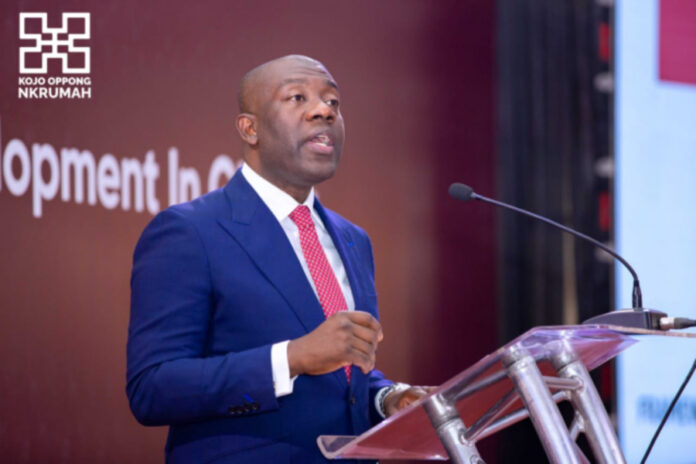The Minority in Parliament has criticised the Bank of Ghana’s (BoG) sterilisation policy, describing it as harmful to economic growth.
They are urging the government to explore more innovative strategies for managing inflation.
Ranking Member on the Economy and Development Committee, Kojo Oppong Nkrumah, revealed in a Facebook post that the central bank has sterilised more than GH¢60 billion since January, citing concerns over excess liquidity in the economy.
He argued that while sterilisation can slow inflation by reducing money supply, the current scale is counterproductive.
“When that money is packed at the Bank of Ghana, it is not available for demand, and so prices won’t rise that quickly. But this is one of the artificial ways of controlling inflation,” the Ofoase-Ayirebi MP noted.
The Minority contends that the policy stifles productivity, job creation, and private-sector growth, pointing out that the amount sterilised is nearly half the Ghana Stock Exchange’s market capitalisation, which stands at just over GH¢130 billion.
Oppong Nkrumah proposed that part of the sterilised funds be redirected into productive investments such as the Venture Capital Trust Fund, providing interest-free equity financing to startups and small businesses.
He further suggested channeling funds into the stock market as zero-coupon equity financing for existing businesses to expand and create jobs.
He warned that sterilisation is only a temporary fix, as inflation may rise again once the funds return to the economy.
“This old economic orthodoxy of just sterilising money and packing it at the Bank of Ghana is not sustainable. What we need is a broader and better strategy that supports growth while managing inflation,” he said.
The Minority is urging policymakers to adopt a balanced strategy to curb inflation while promoting sustainable economic growth.
Source: AdomOnline
READ ALSO:



